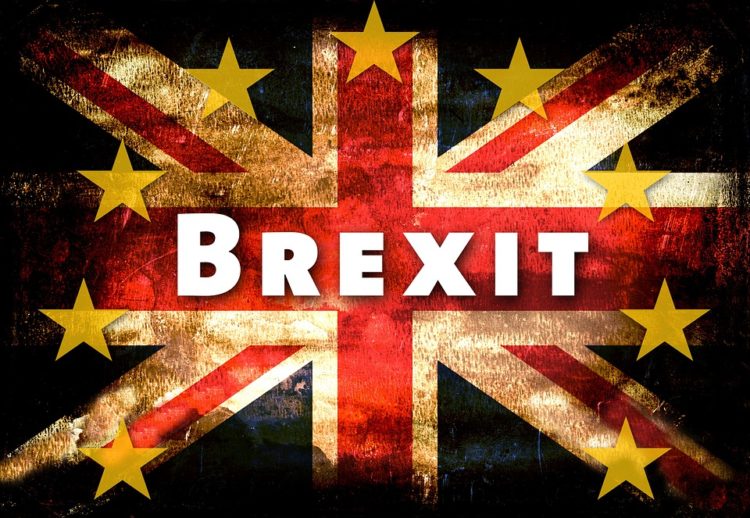Stephen Hannah
SULP Adjunct Professor, Money and Banking
Edited transcript of speech
SUL Symposium, Brexit: What Now? 11 October 2016
Theresa May’s “Brexit means Brexit” offers the illusion of clarity. Clarity about the problem, clarity about the solution, clarity about the necessary actions. We feel your pain, we know what to do, we are on your case!
But strip off the political rhetoric and there is nothing there. The people have spoken but no-one is sure what they have said. The outcome is clouded by huge uncertainty and imponderables. The plan is at best vague, possibly non-existent, most definitely still a work in progress.
At the risk of delving too deep into space-time metaphysics there are fundamental problems: a Remainer’s “Brexit” is not the same as a Leaver’s “Brexit”; within both Remain and Leave camps there are doctrinal splits; Britain’s NHS “Brexit” is not the same as Britain’s manufacturing “Brexit”, or China’s “Brexit”. Moreover, Brexit is not a static object, it is a dynamic process. “Brexit” today already looks quite different from yesterday’s “Brexit”. Predicting future “Brexit” vintages is literally incredible.
So, “Brexit means Brexit” is just nonsense. Not even funny nonsense. So to compensate, we’ll add a few Yogi-isms to lighten the gloom.
To get our heads around Brexit we can use a trip analogy. Getting advice from your travel agent that “a trip is a trip” is hardly a dealmaker. Better, but only just, is
Let’s just talk this through…
- where are you going?
- how will you get there?
- what about the challenges?
- are you out of your mind?
The Destination
“If you don’t know where you’re going, you might wind up somewhere else”
To be fair, this trip was not one the PM would have chosen. But, having been dealt an awful hand, choices have to be made. With the PM understandably adopting the populist Leaver vision, it seems that we are seeking Good Brexit Land, characterised by two sovereignty slogans:
- taking back control (eschewing freedom of movement across borders so limiting immigration, originating laws in Westminster not Brussels, and with legal interpretations taking place in Britain not Luxembourg)
- becoming masters (mistresses?) of our own destiny
As icing on the cake, shorn of our red tape, Bulldog Britain will apparently reinvent itself – brimming with tech revolutions and entrepreneurial derring-do. Foreigners will be queuing at our shores – at a respectable distance of course – to sign up bumper trade deals.
The problem with the best of all possible worlds is not that they are impossible but rather highly improbable. Realistically we have to plan for a far more likely destination – Bad Brexit Land – where we are a lonely and isolated island buffeted by malign global headwinds: climate change, mass migration, fragile finance, terrorism, cyber-attacks, corporate malfeasance.
The risks that “sovereign” nations face emerge from global forces that do not respect arbitrary borders. This is not the time to make a lone stand, to make some futile gesture to raise the tone. However distasteful our European partners there is no denying the maxim of safety in numbers.
The paradox of seeking to take back control is that Britain will lose it. National sovereignty means little in a world dominated by mega-corporations and the power of super- and supra-states such as the US, China and the EU. Key decisions on tax, trade, production, finance and the general rules of the economic game will be set on a bigger stage with Trumpton barely getting a look in.
The Route
“When you come to a fork in the road, take it”
Admittedly a huge simplification, but there are two possible routes to some (unknowable) Brexit outcome: dangerous and very dangerous. This assumes, of course, that the whole trip is not cancelled.
The dangerous route, Soft Brexit, assumes that, having already upset former colleagues you do not start making demands that clearly break rules of the club you have decided to quit and to push for deals that would make any member better off out the club than in. This means a willingness to compromise, to show respect, to display humility.
The very dangerous route, Hard Brexit, displays limited appetite for compromise or flexibility – an approach that is most likely to generate backlashes and vengefulness that will bring everyone down.
Recent comments from Cabinet members imply a preference for Hard Brexit. Yet, the situation remains fluid; exigencies – political and otherwise – will undoubtedly intervene. But if the package that emerges involves dispensing with the single market in order to satisfy calls for migration caps and full legal and economic sovereignty then we shall have a Hard Brexit plus all the extra dangers and costs that such an approach will bring.
From a tactical point of view it is foolish to expect that EU members will compromise on the Four Freedoms (goods, services, people, capital). These freedoms are the cornerstone of the European Project. The EU core would never allow Britain to come out of the negotiation process better off than it was within. That would be a gift to their “revolting right” opponents – a gift that cannot be afforded ahead of key 2017 elections in Germany, France and the Netherlands if a total EU meltdown is to be avoided.
But what about No Brexit – the chance that the trip is cancelled? British courts are considering a legal challenge to the government’s plan to trigger Brexit without further and final consent from Parliament.
Certainly Theresa May is sensible enough to show some flexibility in terms of interpreting the sovereignty of Parliament. Earlier attempts to usurp the Commons by claiming “special rights” have generally not ended well. If MPs are given a more powerful voice, then other scenarios emerge. Perhaps votes of no confidence, snap elections, followed by the voters declaring mea culpa. Not impossible, but regrettably a very long shot.
The Challenges
“A nickel ain’t worth a dime anymore”
Everyone knows the gloomy OECD and HM Treasury forecasts but then we now inhabit a post-truth world that hates experts!
Business surveys are mixed but it is clear that corporate risk appetite has waned, implying reduced investment and probably fewer jobs.
The City of London – a huge contributor to GDP and taxes – is not about to implode but the industry’s global status will erode over time without EU “passporting” rights that seem likely to end. Arguably, a reduced dependence on the financial sector is overdue. Focusing resources on education, health, R&D should be preferred to propping up a deeply flawed industry. That said, the adjustment – involving maybe hundreds of thousands of job losses – could be brutal. Large sectoral shifts are never easy.
What about sterling’s slump? Is that good or bad?
Great for tourists but a mixed blessing for businesses and jobs. In principle exports are more price competitive although imported materials become more expensive. I doubt whether inflation (via higher import prices) will be problematic, especially if the economy slows as expected. If inflation did rise, then price competitiveness would be little changed. But the main problem is that competitiveness is not just, not even mostly, about relative prices. It is about quality, not just in technical and design terms but about connections, networks, friends! If we are burning bridges then it is hard to see us getting much trading benefit at all from a weaker pound.
Our current account deficit reflects structural weaknesses and imbalances that, by itself, currency adjustment will not, and cannot, address. The bottom line is that weaker sterling most likely reflects a collective global view that we face a turbulent, uncertain and painful future in the years to come.
What about the stock market which has been touching record highs? This is misleading since the FTSE100 largely reflects the fortunes of global companies deciding to list in London and the translational profits that accrue as sterling weakens. More domestic-facing indices of UK share prices have actually been falling.
The Reckoning
“We made too many wrong mistakes”
Brexit, as an event, is undoubtedly British. But Brexit, as a collective expression of alienation, is global. Brexit cannot be a solution since the problems emanate from forces far beyond our borders.
The Brexit vote was a cri de coeur in the context of mass migration, heightened economic insecurity, rapid technological change and bewildering changes in social norms. It reflected sentiments that have broad resonance in many countries, including Europe and of course the US.
For some years the evidence of deglobalisation has been building, especially after the Great Financial Crisis; fed by slow growth and rising inequality. It is being reflected in anti-globalisation demonstrations across the planet, in the collapse of support for established democratic leaders and in the rise of political clowns.
These disturbing signs have not gone unnoticed by G20 and the key agencies of political expression.
Significantly, the IMF – iconic prophet of post-war neoliberalism – declared this summer that
- the benefits of growth have not been shared justly, that growth has not been inclusive
- that footloose and fancy-free capital flows are less than ideal
- that fiscal austerity is not always appropriate in all countries in all circumstances
In short, the IMF’s message is that neo-liberalism has been oversold and compromise must follow; globalisation needs to take a more nuanced, balanced approach. The implied alternative does not bear thinking about.
So it is ironic, even tragic, that Britain is deciding to throw in the beach towel just at the time that its collective concerns might have more resonance at the global political level. But to be heard and respected requires staying put, and behaving courteously, at the negotiating table not seeking to exit meaningful dialogue at the earliest opportunity.
Few can dispute the EU’s rotten features and that there is huge room for improvement. But, mimicking Churchill’s thoughts on democracy (or were they Yogi’s?), constructive engagement with the EU is the worst vacation on offer, except for the alternatives.

